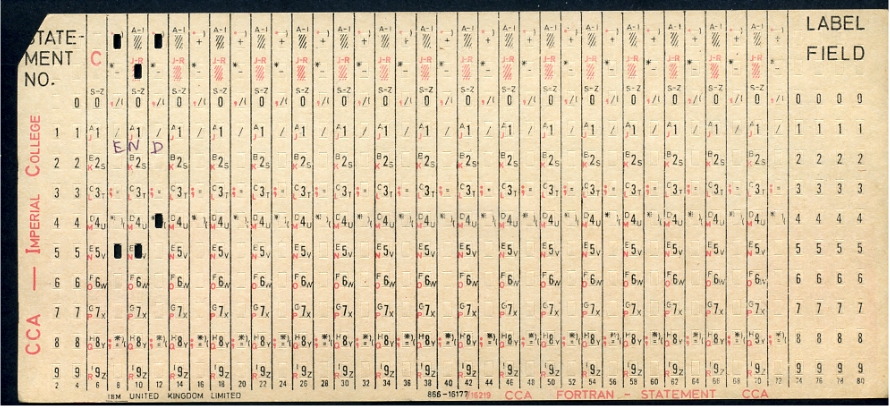|
Department Of Computing, Imperial College London
The Department of Computing (DoC) is the computer science department at Imperial College London. The department has around 50 academic staff and 1000 students, with around 600 studying undergraduate courses, 200 PhD students, and 200 MSc students. The department is predominantly based in the Huxley Building, 180 Queen's Gate, which it shares with the Maths department, however also has space in the William Penney Laboratory and in the Aeronautics and Chemical Engineering Extension. The department ranks 7th in the Times Higher Education 2020 subject world rankings. History The origins of the department start with the formation of the Computer Unit in 1964, led by Stanley Gill, out of the Department of Electrical Engineering. However, earlier work had also been done by the Department of Mathematics, which had built the Imperial College Computing Engine, an early digital relay computer. In 1966, the postgraduate Centre for Computing and Automation came into being and consumed the p ... [...More Info...] [...Related Items...] OR: [Wikipedia] [Google] [Baidu] |
Imperial College London
Imperial College London (legally Imperial College of Science, Technology and Medicine) is a public research university in London, United Kingdom. Its history began with Prince Albert, consort of Queen Victoria, who developed his vision for a cultural area that included the Royal Albert Hall, Victoria & Albert Museum, Natural History Museum and royal colleges. In 1907, Imperial College was established by a royal charter, which unified the Royal College of Science, Royal School of Mines, and City and Guilds of London Institute. In 1988, the Imperial College School of Medicine was formed by merging with St Mary's Hospital Medical School. In 2004, Queen Elizabeth II opened the Imperial College Business School. Imperial focuses exclusively on science, technology, medicine, and business. The main campus is located in South Kensington, and there is an innovation campus in White City. Facilities also include teaching hospitals throughout London, and with Imperial College Healthcare ... [...More Info...] [...Related Items...] OR: [Wikipedia] [Google] [Baidu] |
Data Science Institute, William Penny Laboratory, Main Walkway
In the pursuit of knowledge, data (; ) is a collection of discrete values that convey information, describing quantity, quality, fact, statistics, other basic units of meaning, or simply sequences of symbols that may be further interpreted. A datum is an individual value in a collection of data. Data is usually organized into structures such as tables that provide additional context and meaning, and which may themselves be used as data in larger structures. Data may be used as variables in a computational process. Data may represent abstract ideas or concrete measurements. Data is commonly used in scientific research, economics, and in virtually every other form of human organizational activity. Examples of data sets include price indices (such as consumer price index), unemployment rates, literacy rates, and census data. In this context, data represents the raw facts and figures which can be used in such a manner in order to capture the useful information out of it. ... [...More Info...] [...Related Items...] OR: [Wikipedia] [Google] [Baidu] |
Real Time Club
The Real Time Club is a networking society for professionals with interest in IT and technology. The club is based in London and organises an annual dinner series with speakers on a wide range of topics from ICT, technology and science. History The Real Time Club (RTC) was founded as dining club in the 1960s by US American IT entrepreneur Alan Marshall. For the first 25 years of its existence the Real Time Club dined at numerous London restaurants, but dinners are now usually held at the National Liberal Club in Whitehall. The club celebrated its 45th anniversary in 2013 with a charity dinner hosted by Lord Lucas at the House of Lords. The founding members of the Real Time Club were entrepreneurs and early IT professionals. In its early years the Real Time Club engaged actively in lobbying and policy making to help setting the scene for a thriving IT industry in the UK. Consequently politicians, civil servants and members of the media became regular attendees at the club dinners ... [...More Info...] [...Related Items...] OR: [Wikipedia] [Google] [Baidu] |

